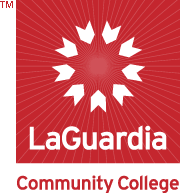Learning from and Reflecting on Marjane Satrapi’s Persepolis II: The Story of a Return [Composition]
Document Type
Assignment
Publication Date
10-2017
Abstract
This staged Composition I - ENG 101 assignment in its entirety was completed over the course of approximately six weeks. Students were allowed to revise and re-submit their work along the way and the grade they earned from this module constituted 30% of their final grade for the course.
In addition to being aligned with the integrative learning core competency and written ability, the assignment emphasizes advancing the students’ abilities to closely read primary and secondary sources, synthesize their understanding of these texts in their writing, and reflect on their work and learning in all the parts outlined below.
While this particular assignment is scaffolded and divided into five parts completed and revised over the course of several weeks, instructors may choose to combine the different parts of this module. Instructors may also choose to grade each part separately or assign a cumulative grade.
By the time the students begin Part I of this module, they will have read Marjane Satrapi’s graphic memoir Persepolis 2: The Story of a Return in its entirety and completed a number of low stakes writing assignments, which stemmed from close reading questions and class discussions.
LaGuardia’s Core Competencies and Communication Abilities
Main Course Learning Objectives:
1. Enable students to understand that writing is a process involving such strategies as prewriting, drafting, revising, editing and proofreading.
2. Teach students to read and listen critically and analytically, including identifying an argument’s major assumptions and assertions and evaluating its supporting evidence.
3. Teach students to write clearly and coherently in varied academic formats (such as formal essays, research papers, and reports) using standard English and appropriate technology to critique and improve one's own and others' texts. Essays will vary in length between 600 and 1500 words. Faculty will enable students to understand audience, voice, and purpose.
4. Guide students to acquire research skills by using appropriate technology, including gathering evaluating, and synthesizing primary and secondary sources. Faculty will teach students to utilize quotation, summation, paraphrase, and citation and to avoid plagiarism.
5. Teach students to support a thesis with well-reason arguments, and communicate persuasively over a variety of contexts, purposes, audiences, and media.
6. Guide students to formulate original ideas and relate them to the ideas of others by employing the conventions of ethical attribution and citation.
Creative Commons License

This work is licensed under a Creative Commons Attribution-Share Alike 4.0 License.


Comments
This resource is part of the Learning Matters Assignment Library.